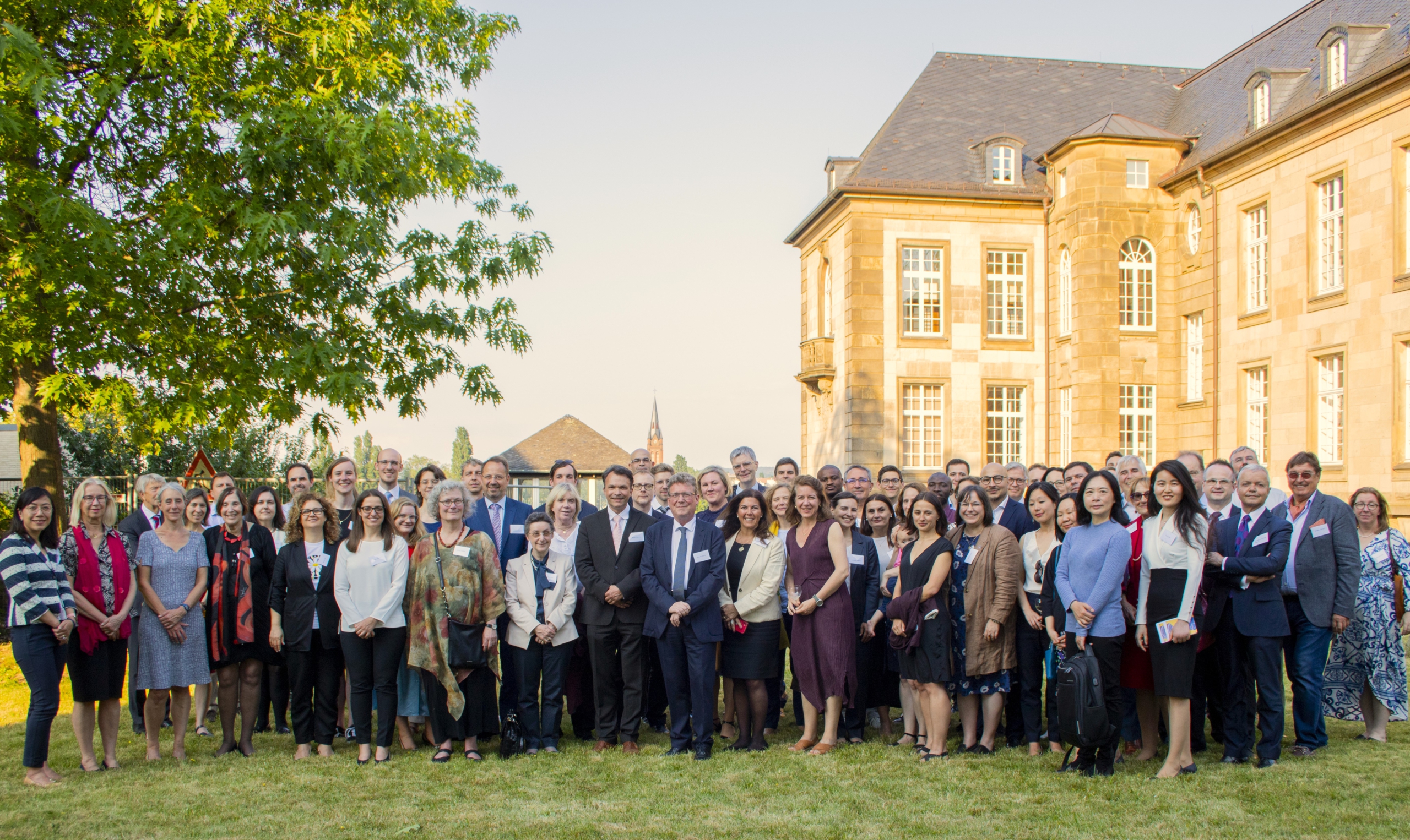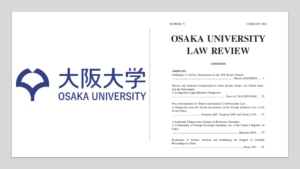Views
Book Review: The UN Guiding Principles on Business & Human Rights
This book review was written by Begüm Kilimcioglu, PhD researcher, Research Groups Law & Development and Personal Rights & Property Rights, University of Antwerp
Barnali Choudbury, The UN Guiding Principles on Business & Human Rights- A Commentary, Edward Elgar Publishing, 2023
The endorsement of the United Nations Guiding Principles (UNGPs) in 2011 represents a milestone for business and human rights as the principles successfully achieved to put the duties of different actors involved in (possible) human rights abuses on the international agenda. The UNGPs provide a non-binding yet authoritative framework for a three-pillared scheme to identify and contextualize the responsibilities with regard to business and human rights: the State’s responsibility to protect, businesses’ responsibility to respect, and facilitating access to remedy. However, although the impact of the principles can be described as ground-breaking, they have also been criticized for their vague and generic language which provides for a leeway for certain actors to circumvent their responsibilities (see Andreas Rasche & Sandra Waddock, Surya Deva, Florian Wettstein).Therefore, it is important to determine and clarify the content of the principles to increase their efficiency and effectiveness. In this light, this commentary on the UNGPs which examines all the principles one-by-one through the inputs of various prominent scholars, academics, experts and practitioners is indeed a reference guide to when working on corporate social responsibility.
The Visible College of International Lawyers and the HCCH 2019 Judgments Convention – Conference in Bonn
The HCCH 2019 Judgments Convention has been the subject of an ever-growing body of academic research and discussion ever since it was signed; but due to the pandemic, almost all of it had to happen in writing. Just in time for its entry into force, though, and thus perfectly timed, the first international conference on the HCCH 2019 Judgments Convention Cornerstones – Prospects – Outlook took place a week ago at the University of Bonn, hosted by Matthias Weller together with Moritz Brinkmann and Nina Dethloff, in cooperation with the Permanent Bureau of the HCCH, and with the support of the German Federal Ministry of Justice.
The conference brought together much of the aforementioned discussion between a range of academics, practitioners and policymakers, including the contributors to the book of the same title, edited by Matthias Weller, João Ribeiro-Bidaoui, Moritz Brinkmann, and Nina Dethloff, for which the conference doubled as a launch event. It accordingly followed the same structure, organized into seven panels overall that were split into three larger blocks.

The first of those (“Cornerstones”) focused on some of the core concepts underpinning the Convention. Wolfgang Hau (LMU Munich) discussed the meaning of ‘judgments’, ‘recognition’, and ‘enforcement’; Pietro Franzina (Catholic University of Milan) focused on the jurisdictional filters (with an emphasis on contractual obligations, i.e. Art. 5(1)(g)); and Marcos Dotta Salgueiro (University of the Republic of Montevideo) discussed the grounds for refusal. After some lively discussion, the block continued with papers on the Convention’s much-discussed Art. 29 (Cristina Mariottini (Luxembourg)) and on its interplay with the 2005 Choice of Court Convention (Paul Beaumont (University of Stirling)).
Review of Choice of Law in International Commercial Contracts
While doing research on a choice of law article, I found it necessary to consult a book generally co-edited by Professors Daniel Girsberger, Thomas Graziano, Jan Neels on Choice of Law in International Commercial Contracts (‘Girsberger et al’). The book was officially published on 22 March 2021. I began reading sections of the book related to tacit choice of law sometime in December 2022 and found the work truly global and compelling. At the beginning of June this year, I decided to read the whole book and finished reading it today. It is 1376 pages long!
To cut the whole story short, the book is the bible on choice of law in international commercial contracts. It covers over 60 countries, including regional and supranational bodies’ rules on choice of law. Professor Symoen Symeonides had previously written a single authored award winning book on Codifying Choice of Law Around the World, but that work did not cover as much as Girsberger et al’s book in terms of the number of countries, and regional and supranational instruments (or principles) covered.
News
Out Now: The Latest Issue of the Japanese Yearbook of International Law (Vol. 67, 2024)
 The Japanese Yearbook of International Law (JYIL) is a leading reference publication that provides in-depth analysis and commentary on developments in international law from a Japanese perspective.
The Japanese Yearbook of International Law (JYIL) is a leading reference publication that provides in-depth analysis and commentary on developments in international law from a Japanese perspective.
Published by the International Law Association of Japan since 1957 (originally as the Annual Yearbook of Private International Law until 2007), the JYIL covers a broad spectrum of topics, from public and private international law to comparative law, bringing together insights from top scholars and legal experts in Japan and beyond.
Each issue dives into key legal cases, legislative updates, and emerging trends, making it a must-read for researchers, academics, and professionals looking to stay in the loop on Japan’s legal landscape.
On that note, the latest volume of the JYIL (Vol. 67, 2024) has recently been released. Readers of this blog may find particular interested in selected articles, case notes, books review and English translations of court decisions related to private international law.
New Titles on Conflict of Laws in the Latest Issue of the Osaka University Law Review

The OSAKA UNIVERSITY LAW REVIEW (OULR) is a prestigious international academic journal on law and politics with a rich history. Published annually by the Graduate School of Law and Politics at Osaka University since 1952, the OULR offers a valuable platform for discussing and sharing information on Japanese law and politics, all presented in English and other foreign languages including French and German from a comparative law perspective.
The OULR’s ultimate goal is to foster debate and facilitate the exchange of ideas between Japanese and international scholars, while promoting and disseminating original research in the fields of Japanese law and politics and other related areas.
That said, the latest volume (No. 72) features some papers that might be of interest to the readers of this blog, as well as researchers and practitioners of private international law. These papers highlight important legal developments in China, particularly in the areas of international civil procedure and sovereign immunity.
3 new books on Portuguese (and European) PIL
For those able to read Portuguese, 3 new books of great interest have been published in the last months.
In January 2025, Professor Luís de Lima Pinheiro published a new, 4th edition of Volume I of the treatise on Private International Law. In more than 600 pages, the book gives an introduction to Conflict of Laws and deals with the General Part of this field. Along with the in-depth analysis of all those subjects, a comprehensive list of legal literature can be found at the beginning of each Chapter.
In November 2024, Professor Dário Moura Vicente published the 5th volume of his PIL “Essays” collection. It gathers 22 scholarly contributions of the author divided into five categories, namely general issues of Private International Law, jurisdiction and recognition of foreign judgments in the EU, international unification of Private Law, the information society and its international regulation, and international arbitration.
And in October 2024, Professor Elsa Dias Oliveira published a book on Conflict of Laws in the EU. It deals with the «general part» issues that for decades have been puzzling many European private international lawyers, due to the fact that for some of them, such as renvoi or ordre public, we may find explicit rules in many PIL regulations, while for others, such as characterization or the application of foreign law, that is not the case.


